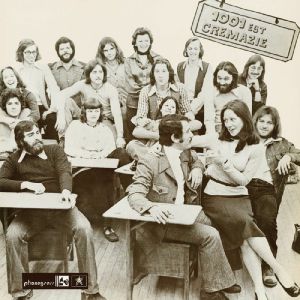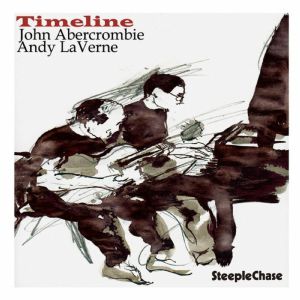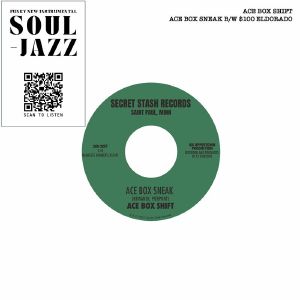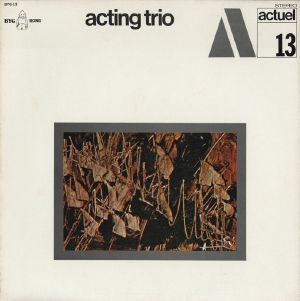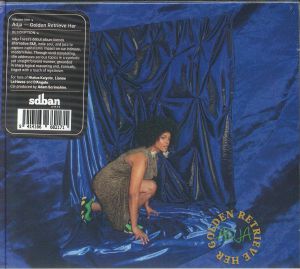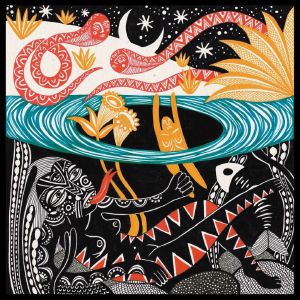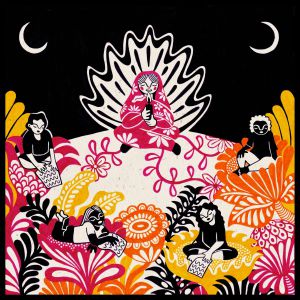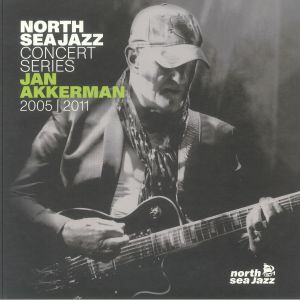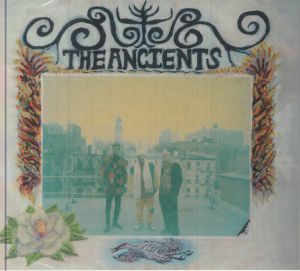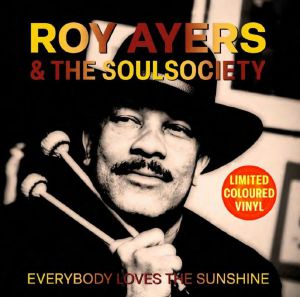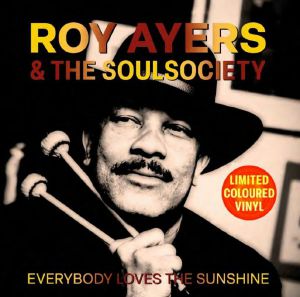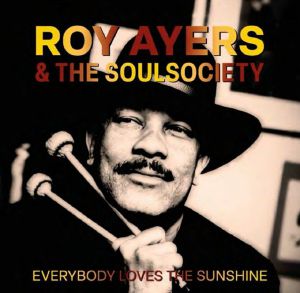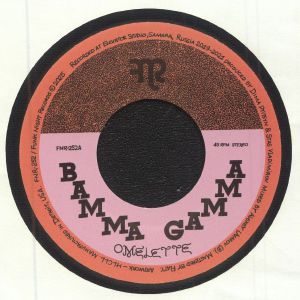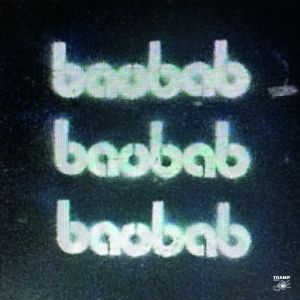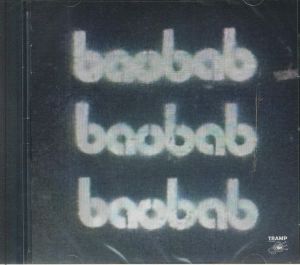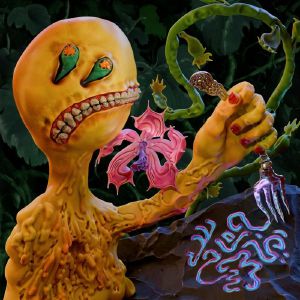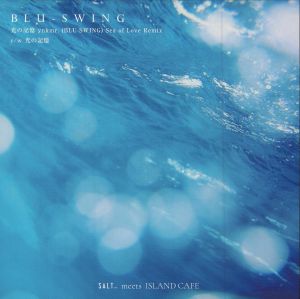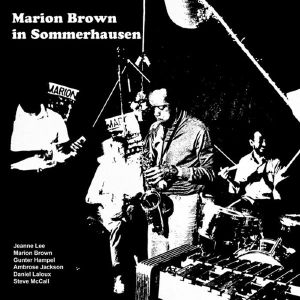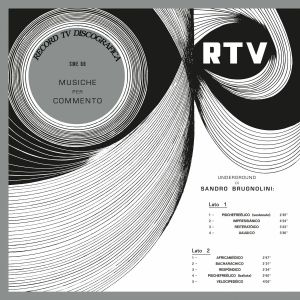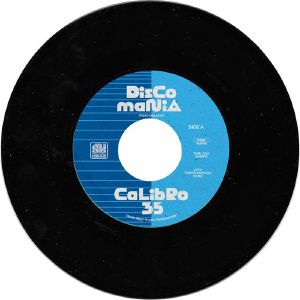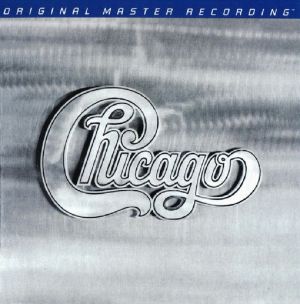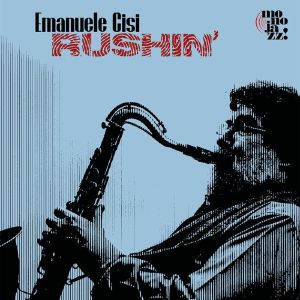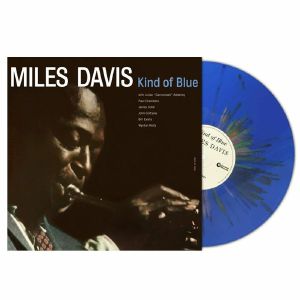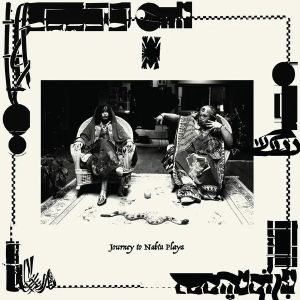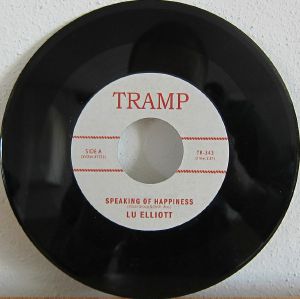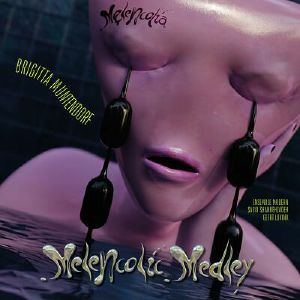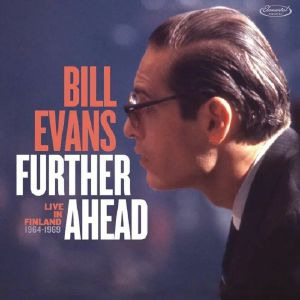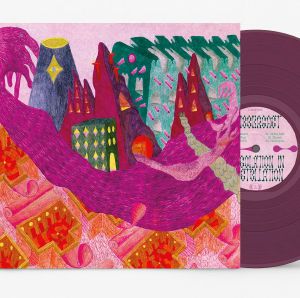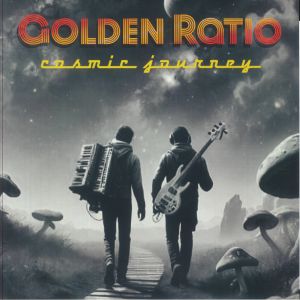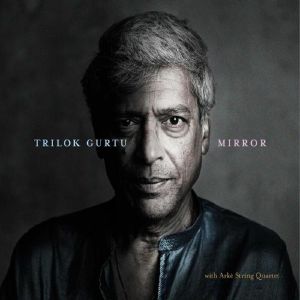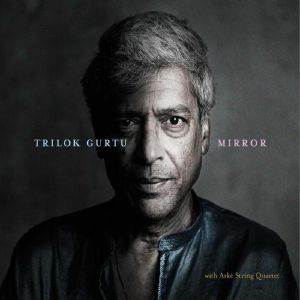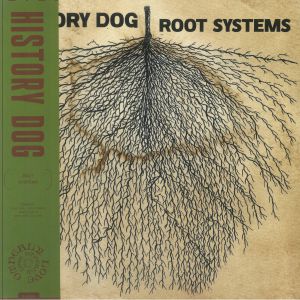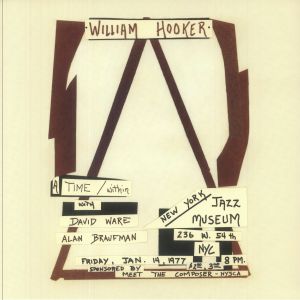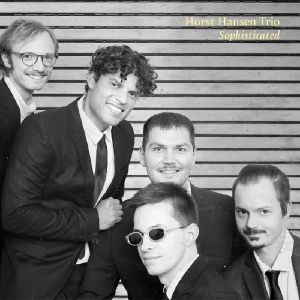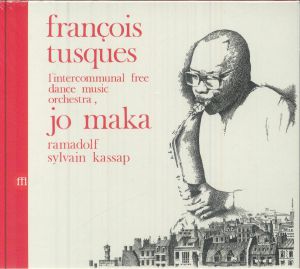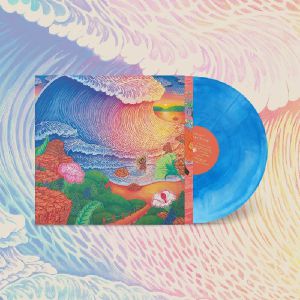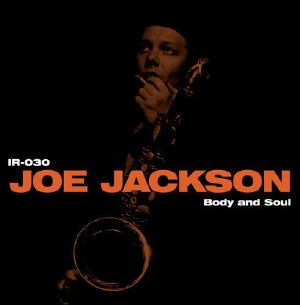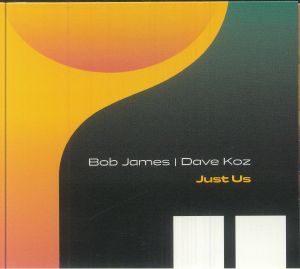Filter
Stock
Label
Featured
Release Title
Price
Tags
New releases last two weeks: Jazz
Jazz vinyl released in the last two weeksReview: More than just a school concert, 1975's Rocking Grass was a sensation. On one fine estival day, The College Andre-Grasset auditorium overflowed, leaving hundreds spellbound. Registering its impact, Jean-Yves Quesnel and colleagues immortalised the show into a recording, transforming Rocking Grass into Phono Grass.Sessions at College Edouard-Montpetit's studio captured the energy of a shifting musical landscape in Quebec; and pianist Benoit Sarrazin, unknowingly recorded mid-performance, later became a professional musician. The album's original songs, 'Le Roi Muffe' and 'Bright Moments', embodied the era's creative freedom, with the latter later sampled by DJs and featured on Canadian Racer. Originally pressed on a 500-copy run, 1001 est Cremazie become a prized collectible; now it's much more readily available.
… Read more in stock $31.83
Timeline (180 gram vinyl LP)
Cat: SPS 15381. Rel: 01 May 25
in stock $32.66
Review: After years of silence following the loss of Sonny Knight in 2017, former Lakers members Blair Krivanek and Cy Pierpont return with their new project, Ace Box Shift. The duo have made plenty of standout contributions to the soul revival scene before now and here they debut on Secret Stash Records with another pair of fiery instrumental cuts that work exceptionally well for DJs and dancefloors alike. They find Krivanek's jazz-infused guitar work meeting Pierpont's pounding rhythms with raw, funk-driven results that make for a bold, high-energy comeback that pays tribute to their roots while also moving things onwards.
… Read more in stock $14.27
in stock $20.86
in stock $13.16
A Paradise In The Hold (limited numbered gatefold ''pearl'' vinyl 2xLP + booklet)
Cat: ALNLP 77W. Rel: 01 May 25
in stock $31.29
Finding My Way Home (reissue) (limited numbered baby blue vinyl LP)
Cat: ALNLP 74W. Rel: 01 May 25
in stock $26.63
La Saboteuse (reissue) (limited 180 gram yellow vinyl 2xLP)
Cat: ALNLP 75W. Rel: 01 May 25
in stock $29.37
Polyhymnia (reissue) (limited numbered 180 gram orange vinyl 2xLP)
Cat: ALNLP 76W. Rel: 01 May 25
in stock $29.37
North Sea Jazz Concert Series (limited 180 gram white vinyl LP)
Cat: 871862 7235744. Rel: 06 May 25
in stock $38.15
in stock $17.56
in stock $24.98
in stock $24.43
Everybody Loves The Sunshine (remastered) (translucent yellow vinyl 7" limited to 300 copies)
Cat: SSCRART 007 YELLOW. Rel: 09 May 25
Review: Roy Ayers at his most transcendent. 'Everybody Loves the Sunshine' is more than a summertime anthemiit's a spiritual moodboard that's shaped jazz-funk, soul, r&b and hip-hop for nearly 50 years. Ayers, born in Los Angeles and raised in its fertile fusion scene, places the vibraphone at the music's heart, coaxing heat-haze tones from sparse chords, synths, and that honeyed chorus. Flip it over and the instrumental version unlocks a deeper layer: stripped of vocals, it becomes a pure groove, drifting and hypnotic. What lingers is the balanceibetween melancholy and bliss, rhythm and release. A rare track that feels entirely unhurried yet quietly radical, now preserved in a limited pressing that looks as golden as it sounds.
… Read more in stock $17.84
Everybody Loves The Sunshine (remastered) (translucent orange vinyl 7" limited to 300 copies)
Cat: SSCRART 007 ORANGE. Rel: 09 May 25
Review: This orange 7" is a miniature monument to one of soul's most quietly influential figures. Roy AyersiLos Angeles-born, jazz-schooled, funk-mindedicrafted 'Everybody Loves the Sunshine' not to dazzle but to dissolve. It moves with a drowsy clarity: shimmering synth, near-whispered vocals, and a lazily tumbling bassline that never quite lands. Released during a golden run of Ayers' mid-70s material, the track has since become shorthand for warm-weather introspection, equal parts ease and ache. The instrumental version on the reverse keeps the spirit intact, offering a meditative glide through the same terrain. Limited to 300 copies, this orange pressing pairs a low-lit groove with a deepening sense of legacyiAyers' influence isn't just heard, it's felt in the space he leaves behind.
… Read more in stock $17.84
Cat: SSCRART 007 BLACK. Rel: 09 May 25
Review: Few recordings capture the easy intensity of a summer afternoon like 'Everybody Loves the Sunshine'. Released in 1976 and wrapped in slow-drifting synths and soft falsettos, the track became a touchstone not just for Roy Ayers, but for 70s soul and beyond. Born in Los Angeles, Ayers helped define the jazz-funk crossover, placing the vibraphone at the centre of a sound both hazy and sharply detailed. The original vocal take on the A-side still melts under its own warmth; the instrumental on the flip uncovers the careful architecture beneath. Issued here on 7" black wax following Ayers' recent passing, this reissue feels like both a keepsake and a quiet honouring of an artist who shaped a whole way of listening.
… Read more in stock $17.84
At This Time (20th Anniversary Edition) (limited numbered 180 gram audiophile clear vinyl LP + insert)
Cat: MOVLP 3801C. Rel: 07 May 25
in stock $31.83
Review: Bamma Gamma returns with a sizzling slab of funk in the form of 'Omelette' via Detroit's renowned Funk Night Records. This one is a digger's dream, raw, gritty instrumental funk with break-heavy drums, tight guitar licks and basslines so greasy they practically drip off the record. True to Funk Night's underground sound, Omelette is unapologetically retro and authentic and serves up irresistible dancefloor heat that feels like a lost '70s cut that has been newly rediscovered. For DJs looking to inject some analogue soul into their sets, it's a no-brainer.
… Read more in stock $15.65
in stock $25.80
Keine Nummer
Malta
Seven Up
Just Now
Elfer Raus
Dadort
Keine Nummer (take One - 2022)
in stock $14.01
in stock $28.27
in stock $32.92
in stock $26.34
In Sommerhausen (reissue) (LP (comes in random coloured vinyl, we cannot guarantee what you will receive))
Cat: 63677. Rel: 01 May 25
Review: In Sommerhausen is a historical live recording from the Bavarian State Conservatory of Music in Wuerzburg, Germany, made on May 17 back in 1969. It has the talented Gunter Hampel on vibraphone, bass clarinet and percussion and is a session that also highlights the work of alto saxophonist Marion Brown, an unsung hero of the jazz avant-garde. Brown's lyrical, improvisational style is evident all across these tunes, and he is backed expertly by Hampel's rich instrumentation. Both of the deeply expressive musicians speak from the soul here while tracks like 'Malipieros Midnight Theatre' are laden with found sounds and percussion that may remind of the great Don Cherry.
… Read more in stock $29.09
Underground (mono) (remastered) (limited LP in debossed sleeve)
Cat: SME 88. Rel: 07 May 25
Review: Originally recorded in Rome with top-tier players like Giorgio Carnini and Giovanni Tommaso, this psychedelic library session bridges modal jazz, Latin percussion, and fuzzed-out funk. This reissue restores the 1970 cut in full, swirling through ghostly organ grooves and spiralling rhythm sections with a clarity that feels startlingly fresh. 'Psichefreelico (Sostenuto)' and 'Bacharachico' glide between dreamy lounge and scorched delay-drenched oddness, while 'Africaneidico' pulses with loose Afro-Latin syncopation. Mined from Italy's golden age of library music and remastered from mono tapes, it's a masterclass in instrumental storytellingivivid, woozy and totally transportive.
… Read more in stock $33.77
Review: The Milanese outfit dive headlong into cinematic Afro-disco on this limited 7", reworking two cult dancefloor staples with characteristic flair. On the A-side, their version of Piero Umiliani's 'Discomania' hits with tightened syncopation and swirling synth arrangements, turning the cosmic Italo-disco cut into a hypnotic afrobeat strut. Flip it over for a rich reimagining of Azymuth's 'Jazz Carnival'iCalibro 35 boost the groove with deep-bottomed funk and crisp horns, pushing the original's samba swing into widescreen. Known for their work at the intersection of funk, soundtrack and psych, the band bring sharp musicianship and warm analogue heat to both sides of this essential 45.
… Read morePlayed by: Craig Charles Funk And Soul
in stock $13.45
Chicago II (reissue) (limited numbered SACD)
Cat: 821797 213363. Rel: 28 Apr 25
in stock $48.85
Review: Emanuele Cisi's Rushin' celebrates jazz in its purest form. It was recorded in just one inspired April weekend with Cisi leading a stellar quartet of Dado Moroni on piano, Nicolas Thys on bass and Jorge Rossy on drums. The full emotional range of the genre is on show here with swing, blues and spiritual depth rising up through the tracks which range from reimagined standards to soulful originals like 'Pharoah's Message'. Throughout, the album honours jazz greats such as Coltrane and Lee Morgan with Cesare Mecca guesting on trumpet and it all adds up to heartfelt performances rich in discovery and style.
… Read more in stock $32.12
Trane's Reign aka Settin' The Pace (reissue) (limited clear vinyl LP)
Cat: SOW 057. Rel: 07 May 25
in stock $21.13
Kind Of Blue (reissue) (180 gram blue splattered vinyl LP)
Cat: SRPD 0019SP2. Rel: 30 Apr 25
in stock $30.74
Journey To Nabta Playa (Deluxe Edition) (gatefold 180 gram vinyl 2xLP with obi-strip)
Cat: LPSPM 012X. Rel: 02 May 25
Review: Spiritmuse Records presents Journey to Nabta Playa, the dialogic result of Angel Bat Dawid and multidisciplinary artist Naima Nefertari, as they team up to honour the ancient Nubian astrological site of the same name. An ancient Neolithic site in Egypt's Nubian Desert predating Stonehenge, Nabta Playa incorporates a stone circle whose lithic configuration aligns with celestial events. Fittingly, then, this clash-of-titans record astrologises celestial electronics and divines ancestral predestinations, sewing a starry sonic tapestry - in Bat Dawid's terms "this is not just an album, it's a constellation". Picking up where Don and David Ornette Cherry left off with 'Bishmillah', and carrying out such further original, summative sonic burial and resurrection rites such as 'Black Stones Of Sirius' and 'Procession Of The Equinox', we hear a dance of featuring flute, clarinet, and vibraphone, and enraptured voice.
… Read more in stock $51.05
in stock $34.86
in stock $18.39
Review: Thanks to the year being 2025, te jazz age of the 1920s is being centennially anniversaried the world over. But when recorded music took the world by storm from the 50s onwards, it was only a matter of time before such starlets Lu Elliott would make latent but no less powerful waves in the same early jazz sound, except this time around, the sonic vestiges of the time were preservable. Elliott, a jazz/blues singer and recording artist, was a onetime BB King and Duke Ellington posse member, having found her lungs playing in a band known as The Cubanaires before bronchi-ating out into mid '60s solo stardom with tunes such as 'Speaking Of Happiness'.
… Read more in stock $10.97
Melencolic Medley (grey marbled vinyl LP + booklet)
Cat: EMLP 002. Rel: 08 May 25
in stock $23.89
Cat: 843539 5504659. Rel: 29 Apr 25
in stock $23.04
Consolation In Constellation (transparent magenta vinyl 12")
Cat: CHXIV 016. Rel: 01 May 25
Review: Vincent Lemieux and Guillaume Coutu Dumont are the producers who combine as Flabbergast and now they unveil their full-length debut, Consolation in Constellation. As you would expect from those two artists, it is a boundary-pushing journey through sound that is rooted in improvisation, classical training and deep electronic exploration. The album fuses jazz, acid house, breakbeatand cosmic textures into a seamless exploration that adds up to a sonic constellation-carefully composed, yet full of spontaneity. 'Binary Star' is like IDM, minimal and electro all distilled into a siren new sound, 'Orion Belt' is rich in pixel thin pads and glinting chords and 'Phaser' is a slithering, high speed electro workout from another world and with a playful charm despite its highbrow design.
… Read more in stock $20.04
Played by: Craig Charles Funk And Soul
in stock $26.90
Review: Future Rootz has collaborated with Canal Sounds and EGREM for a gem of a reissue here that goes all the way back to 1977 when producer and bassist Jorge Soler stepped out as Grupo Yoyi for Yoyi, an album that marked his only known solo project. The record now sits up there as one of the rarest and most desirable albums from the Cuban musical canon as it is such a sublime fusion of Afro-Cuban rhythms with jazz, funk and disco. The musicianship throughout is exceptional with mesmeric synths and evocative horn solos all tethered to the sort of grooves that will either chill you out or heat you up depending on the setting.
… Read more in stock $28.83
in stock $22.78
in stock $15.92
in stock $40.90
! low stock $24.43
Root Systems (LP + MP3 download code with obi-strip)
Cat: OTLV 0151. Rel: 09 May 25
in stock $23.61
Cat: 62743. Rel: 01 May 25
Review: Originally recorded live at the New York Jazz Museum in 1977, this newly mastered version of a classic form William Hooker captures a vital, previously unheard performance from three titans of free jazz. They are eponymous drummer William Hooker, tenor saxophonist David S. Ware and alto saxophonist Alan Braufman and this session brims with raw, unfiltered energy that taps into a pivotal moment in each artist's career. Hooker's percussive invention, Ware's searing intensity and Braufman's loft-era vision combine in a spellbinding document of New York's avant-garde scene and form what is a crucial artefact from jazz's fearless frontier of the time.
… Read more in stock $29.63
in stock $21.95
Vol 4: Jo Maka (CD)
Cat: FFLCD 92. Rel: 01 May 25
in stock $14.55
Tide/Tied ("into the water" blue swirl vinyl LP with obi-strip)
Cat: LPTSR 284C. Rel: 09 May 25
in stock $29.63
Body & Soul (reissue) (gatefold 180 gram vinyl 2xLP)
Cat: 680270 758209. Rel: 12 May 25
in stock $66.97
in stock $19.49

 USD
USD





